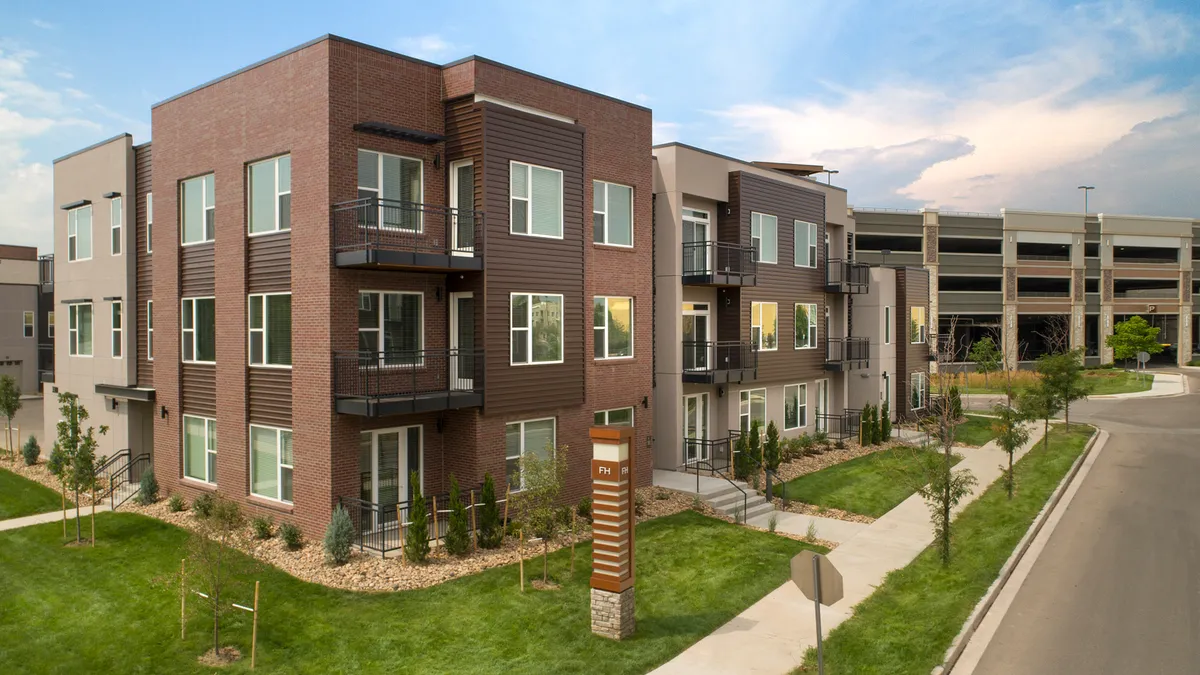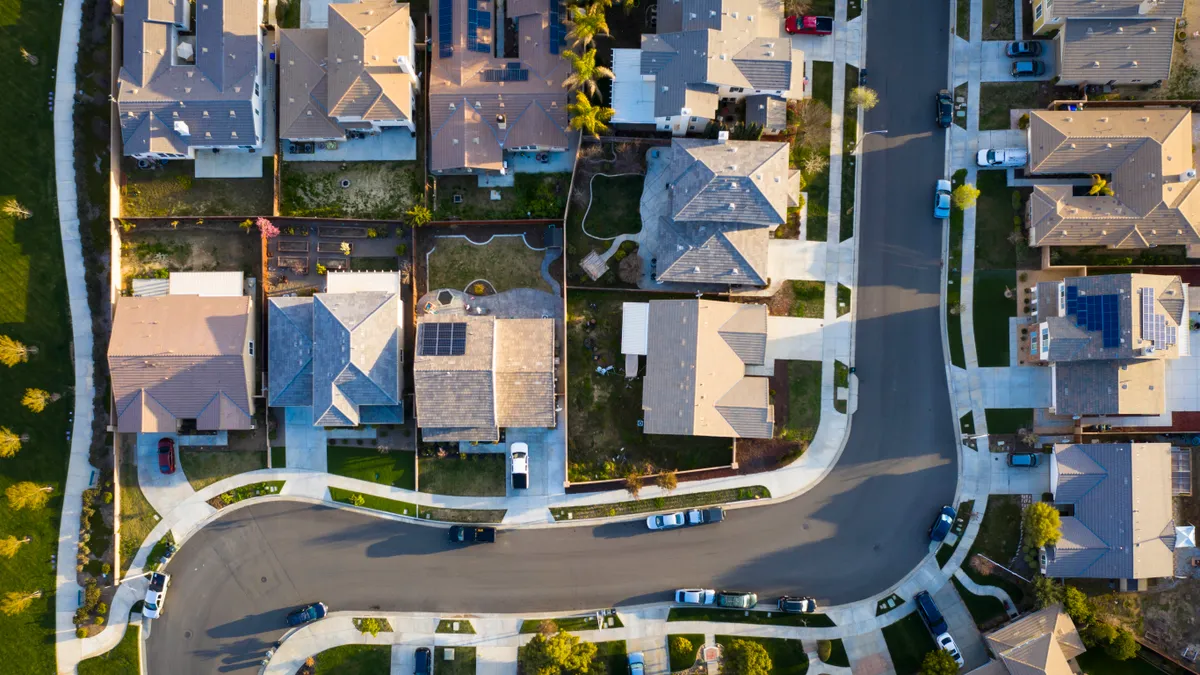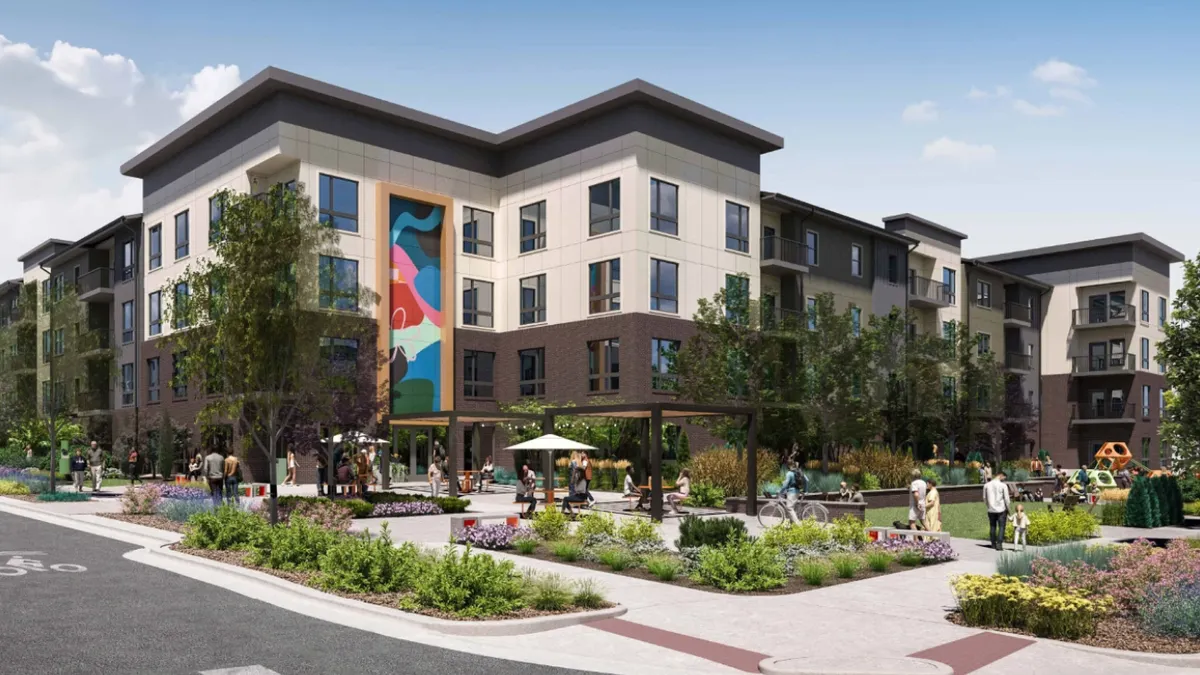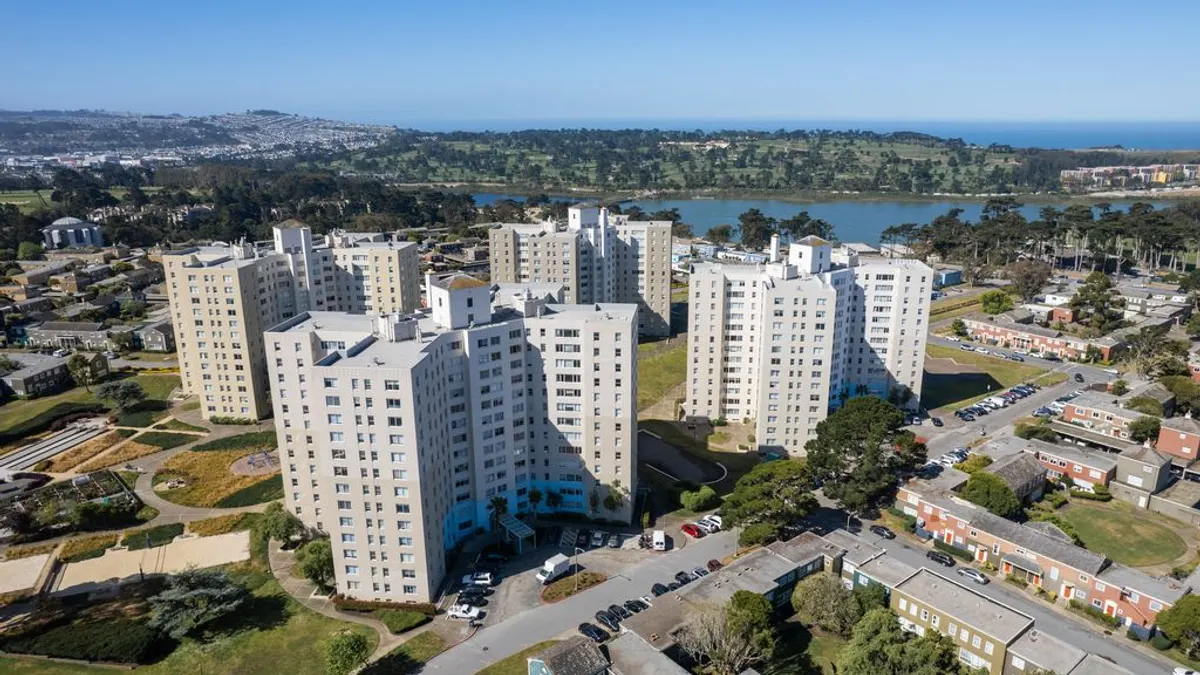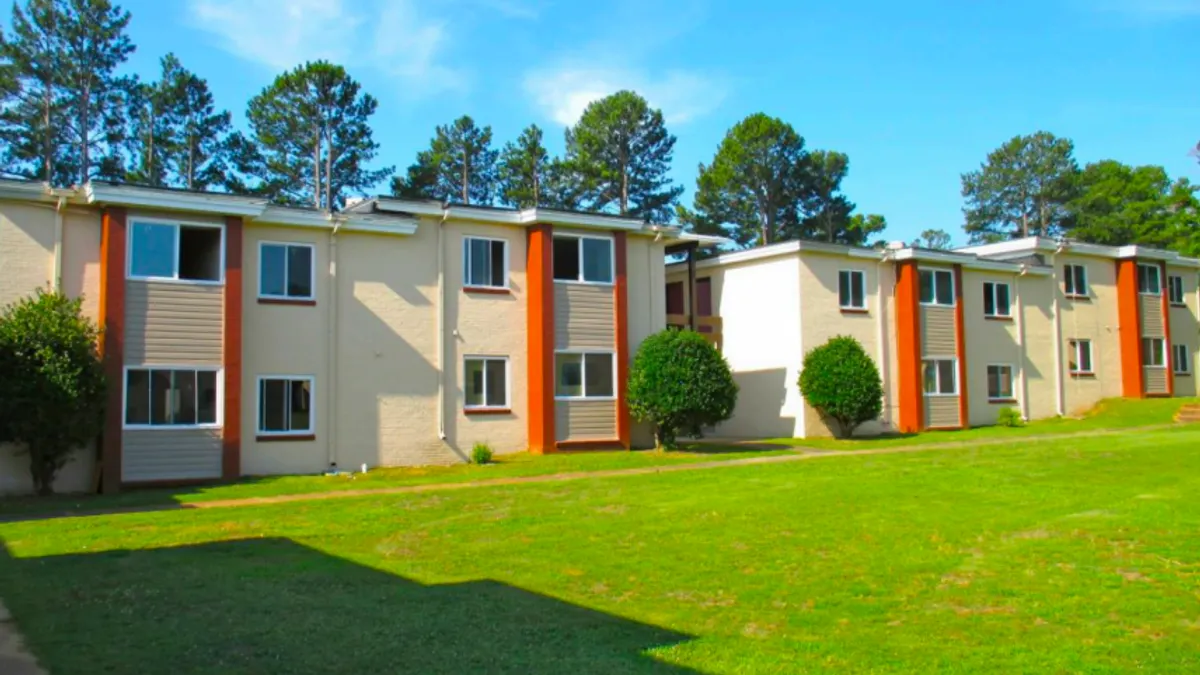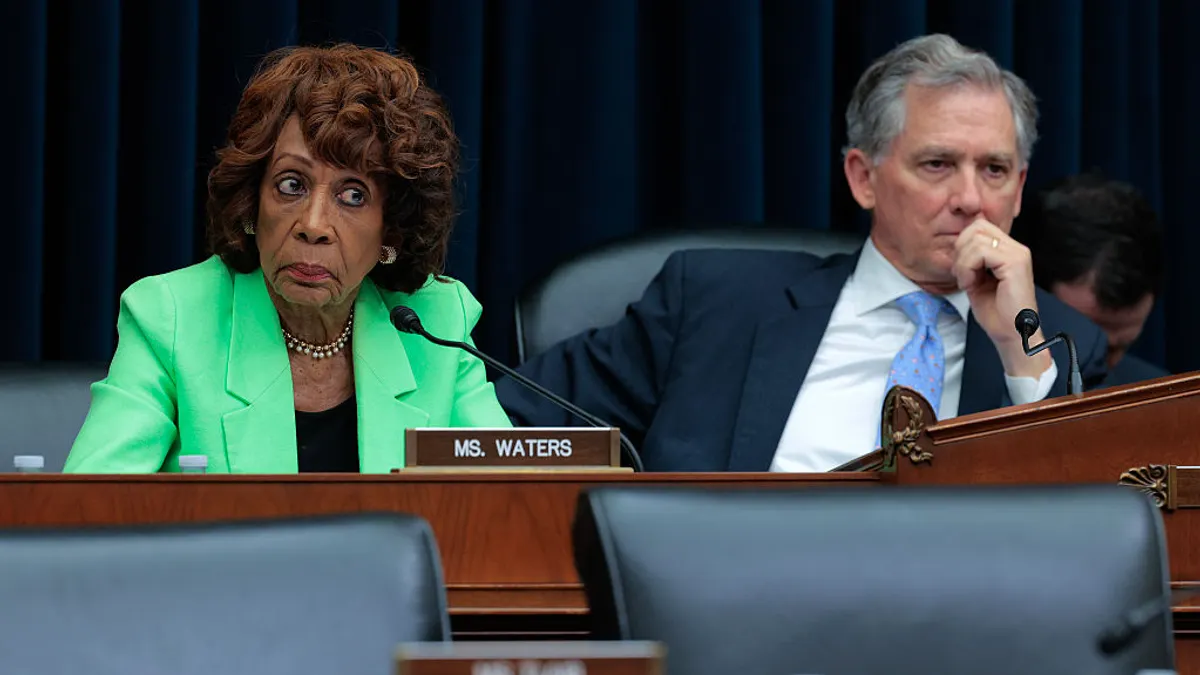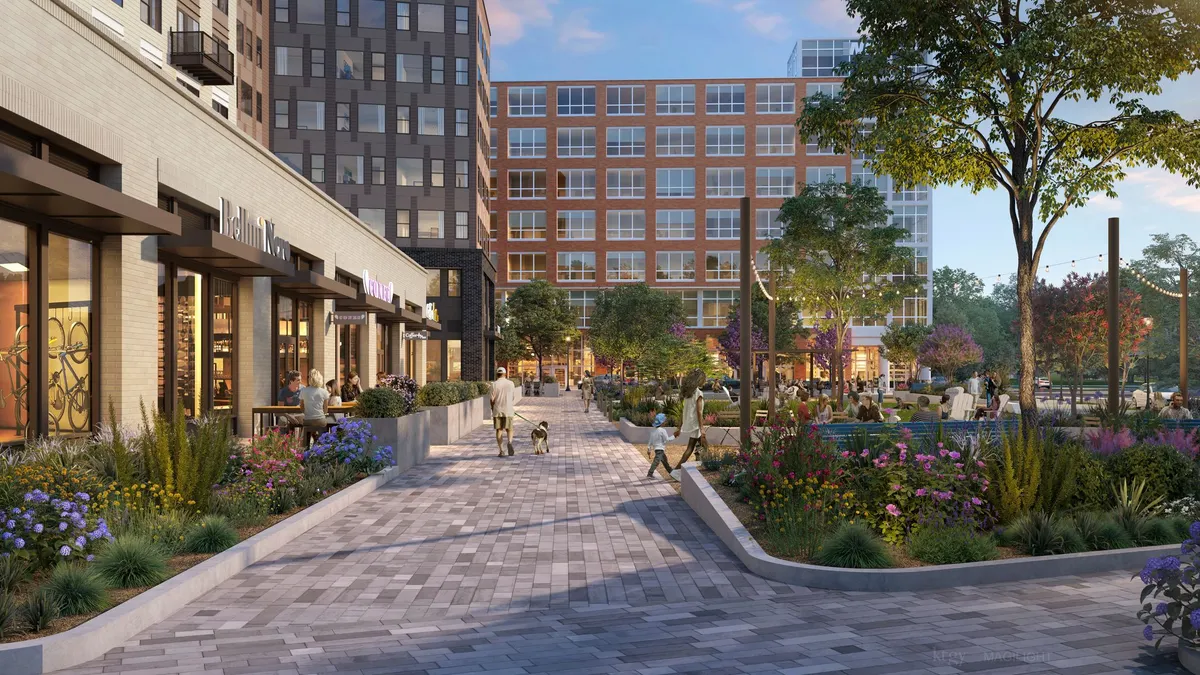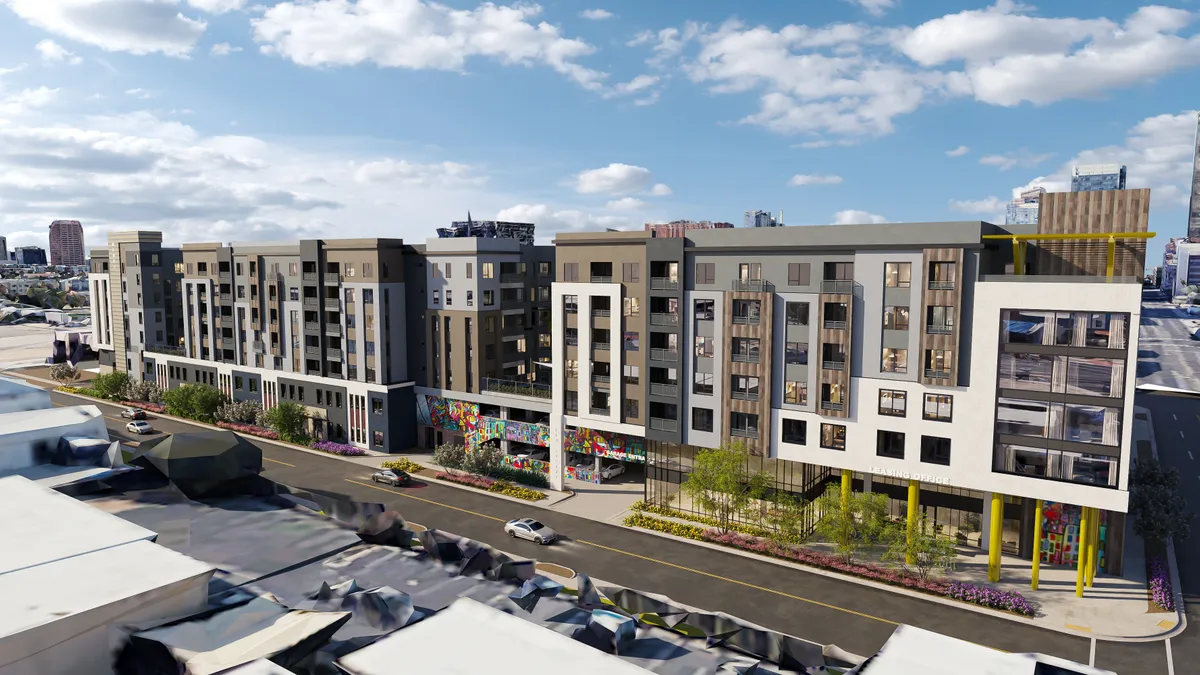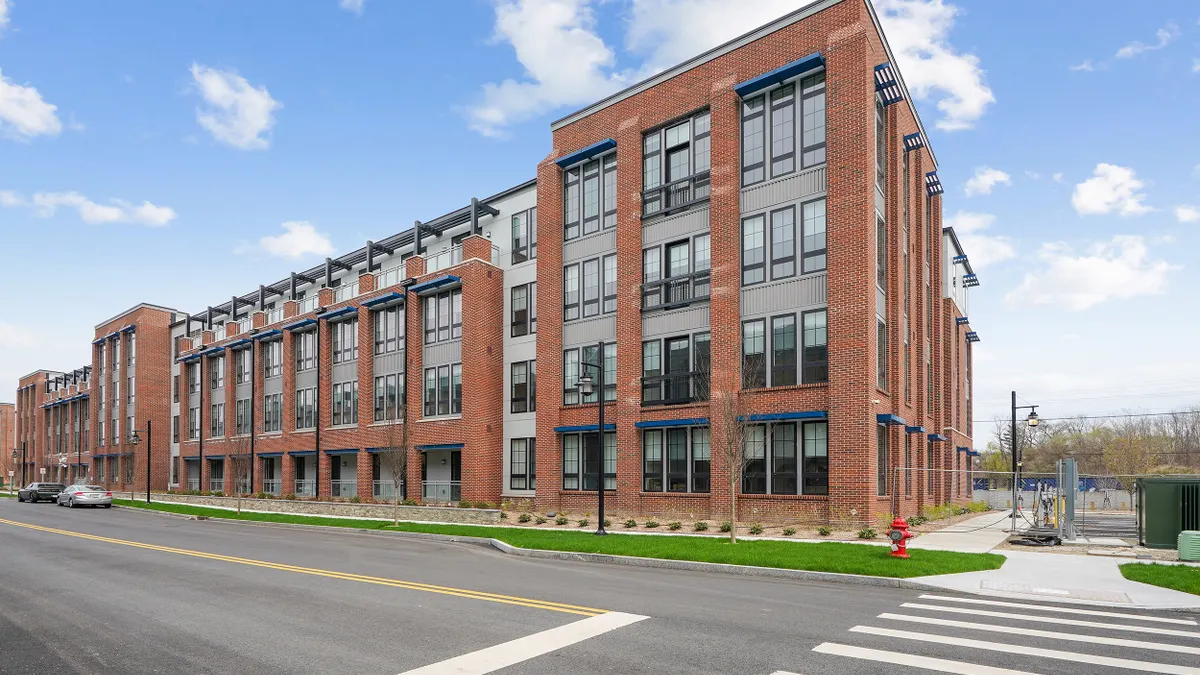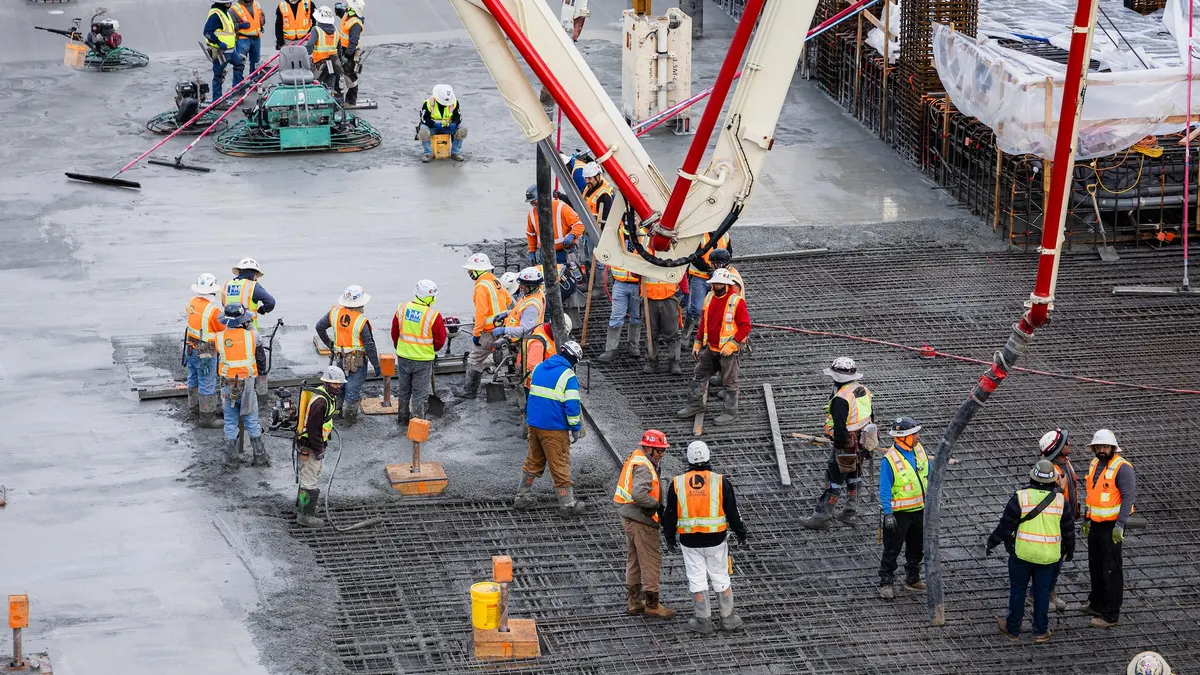After buying only one asset and delivering only one development in 2023, Boise, Idaho-based owner-operator Roundhouse is expanding rapidly this year.
The firm has made over $300 million in acquisitions and $150 million in new groundbreakings across the Western U.S in 2024. It entered the northern Colorado market with the Cycle Apartments in Fort Collins, Colorado, and Clovis Point in Longmont, Colorado, a pair of acquisitions totaling 613 units, and recently started two projects — Snowfarm in Missoula, Montana, and Cloudveil in Idaho Falls, Idaho — set to deliver next year.
Taken together, its new properties and projects will add 1,530 units to its portfolio, which has grown from 6,500 units in mid-2023 to 8,700. Michael Caldwell, managing director of investments at Roundhouse, expects its trajectory to continue.
“We'd like to maintain the pace that we have had this year on a go-forth basis,” Caldwell told Multifamily Dive. “Some of that will certainly be dictated by the opportunity set for acquisitions and development. But we're bullish on the regions we're in. I don't see any reason why we won't be able to keep a similar pace to this year.”
Here, Caldwell talks with Multifamily Dive about investment strategy, capital improvements and the new interest rate environment.
This interview has been edited for brevity and clarity.
MULTIFAMILY DIVE: How were you able to assemble this set of new acquisitions and groundbreakings this year?
MICHAEL CALDWELL: It wouldn't have been possible without a set of very strong relationships with our capital partners. We have a couple of families that we've worked with since the founding of the firm who are extremely loyal and supportive of the business and understand what we're trying to accomplish.
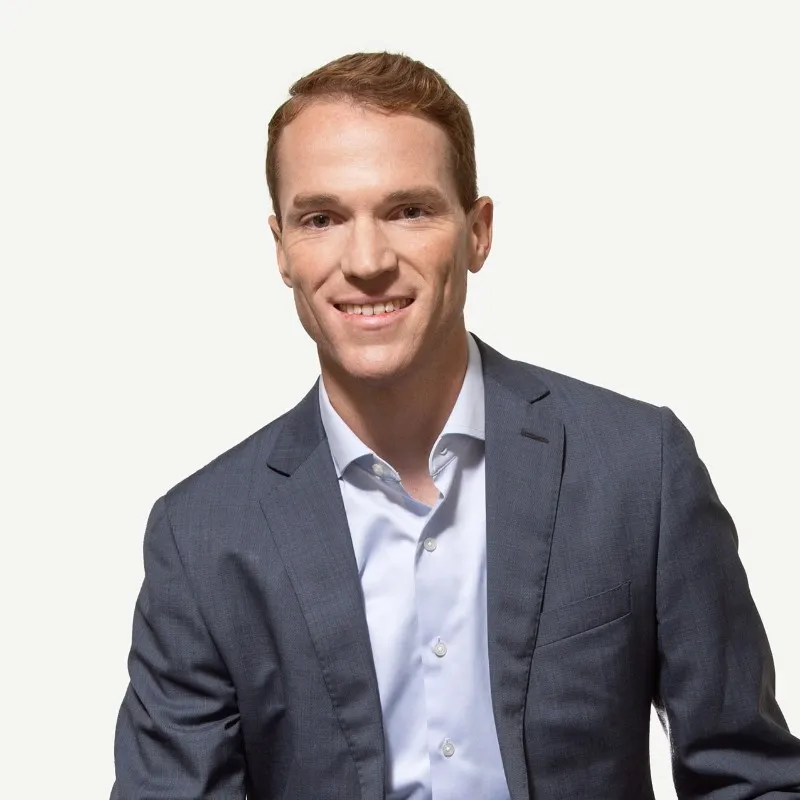
We've also added a couple of new relationships in the last couple of years that have expanded our capabilities from an equity capital standpoint.
We also have very deep and strong relationships with both government sponsored agencies, Fannie Mae and Freddie Mac, on the debt financing side, and a couple of longstanding relationships with the firms that originate those loans. And then I would say it's really just been staying dedicated and focused on our targets, looking for assets that fit our criteria in terms of size, quality, location and vintage.
What are your criteria? Why did you choose the markets you did to develop and buy in?
We take a top-down and a bottom-up approach. We have several criteria that we look for in markets — population growth, access to employment and safe communities to live in. We look at supply, housing supply dynamics, both on the for sale and the rental side. And then we also have a top-down analysis that most groups like us do.
We also spend significant time in these markets and look for that “X” factor, if you will. Something that makes a community or a market unique, has exogenous factors that would make people want to move there.
In our region, that's primarily access to outdoor recreation, if you know any of the Colorado markets we're in, or Boise, for example, or Missoula, Montana. Right at your back door there's skiing, hiking, biking, fishing, all those great things. And all these markets have great little downtowns and a nice restaurant scene and culture.
The other criteria I didn't mention is relative affordability, which has been a big theme in the Mountain West and the Pacific Northwest.
If it’s in a market that is in our yes box, and it's got good scale, relatively new vintage, great amenities, bigger average unit sizes — there's all the things that we use as filters as to whether or not we like an opportunity.
Do you have any renovations planned for your newly acquired properties?
We typically do not look for older properties that require a truly value-add business plan. But for example, at Cycle Apartments we're planning a reasonably comprehensive common area upgrade program, primarily the clubhouse.
The exact scope is to be determined, but upgrading things like furniture, paint, just kind of the general welcome experience when you enter the property. We also have some ideas around other common area upgrades, potentially putting in a CrossFit gym in one of the spaces that's currently empty.
How will the recent interest rate cut affect things for you?
We're certainly not immune to the capital markets environment, like our peers. Last year we found it very difficult to find deals that priced to a level that worked for us, where a seller was also willing.
This year, as the elevated interest rate environment persisted, we have started to see sellers who, for various reasons, decided to sell at a price level that worked for our program and our capital.
The longer the elevated interest rate environment persisted, the more willing sellers we were able to find going forward. Assuming cap rates stay where they are, or at least don't drop in lockstep with interest rates, it'll be easier to make the math work on deals.
I think there's going to be a lot more competition over the next couple of years, but I think it'll still be less competitive than it was at the end of the last cycle. It won't be without its challenges, but we think there will be opportunities.


